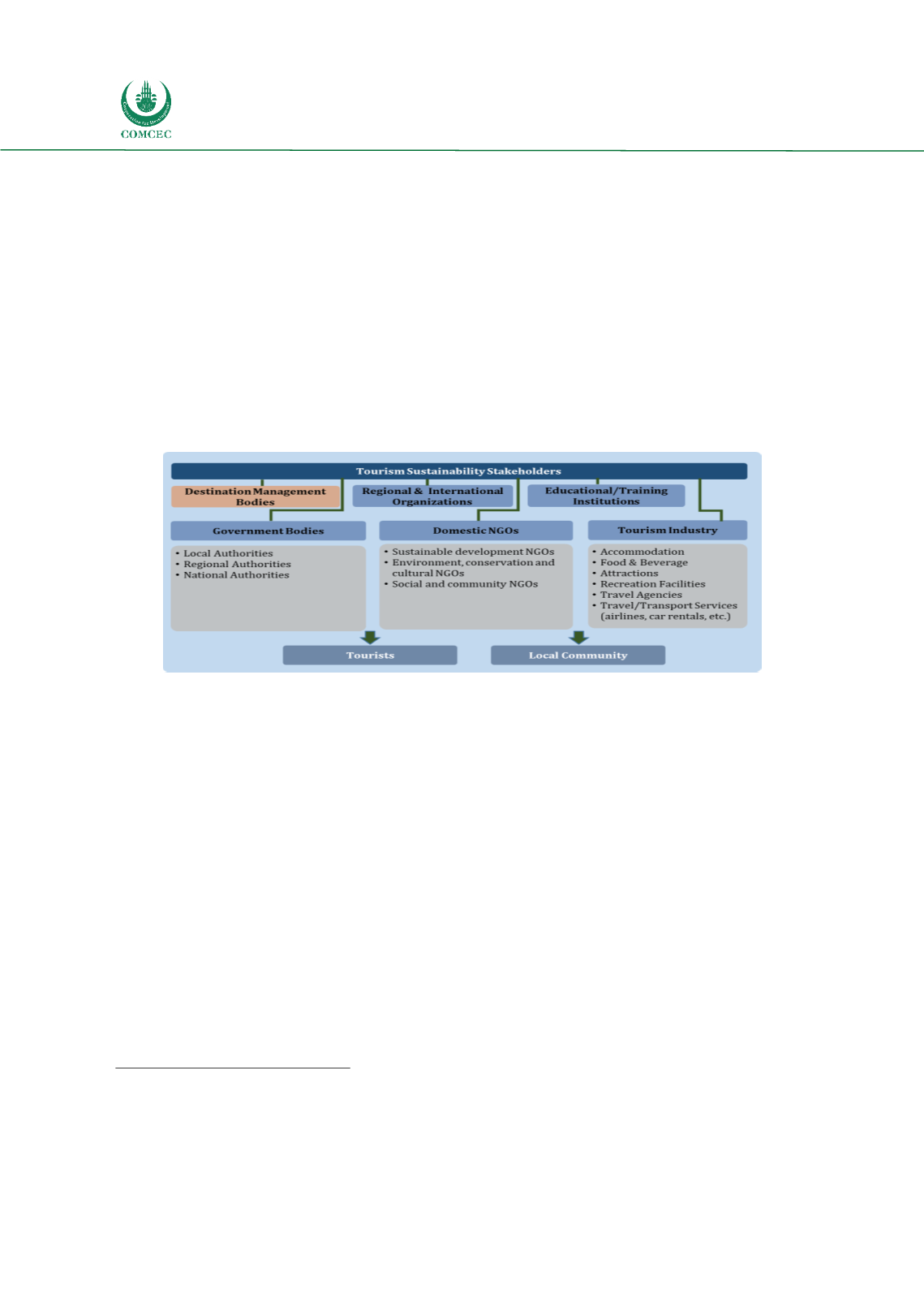

Sustainable Destination Management
Strategies in the OIC Member Countries
36
Sustainable Tourism Stakeholders
1.2.1.
Stakeholders and their Roles
To create a sustainable tourism development model, destinations need to develop
comprehensive long-term plans since environmental conservation measures typically need
time, cooperation, and coordination among various public and private entities as well as with
local communities.
105
There is a multitude of stakeholders that need to be engaged in sustainable
tourism development, including tourism/destination management bodies, government bodies,
non-governmental organizations, regional and international organizations, domestic non-
governmental organizations, educational institutions, the tourism industry, tourist and the local
community.
106
Figure 8: Sustainable Tourism Stakeholders
Source: DinarStandard
As discussed earlier, DMOs play an important role in sustainability at the destination level, they
also play an instrumental role in coordinating between the various sustainable tourism
stakeholders. On the other hand, there are various governmental bodies at national, regional,
and local levels that also play an instrumental role in sustainable tourism policies and strategies.
Governmental bodies manage tourism-related resources and plan infrastructure development
as well as coordinate between and provide support to stakeholders.
107
Beyond funding and
financing sustainable tourism initiatives, governmental bodies also play an important role in
disseminating information as well as coordinating and providing a supportive environment for
private sector sustainable tourism initiatives. Governmental bodies also carry the responsibility
for introducing needed financial market reforms to encourage the private sector to adopt
sustainable tourism strategies and initiatives.
108
Regional and international organizations have an important role in integrating sustainable
tourism development policies and agreements as well as providing financial and technical
assistance in the area of sustainable tourism.
109
The UNESCO World Heritage Committee has
played a leading role in protecting natural, cultural and historical heritage. UNESCO has
bestowed international legal protection to 1,073 sites around the globe through World Heritage
105
OECD. (2018).
OECD Tourism Trends and Policies 2018
. Paris: OECD Publishing.
106
UNWTO. (2013).
Sustainable tourism for development guidebook
. UNWTO.
107
UNWTO. (2013).
Sustainable tourism for development guidebook
. UNWTO.
108
OECD. (2018).
OECD Tourism Trends and Policies 2018
. Paris: OECD Publishing.
109
UNWTO. (2013).
Sustainable tourism for development guidebook
. UNWTO.
















